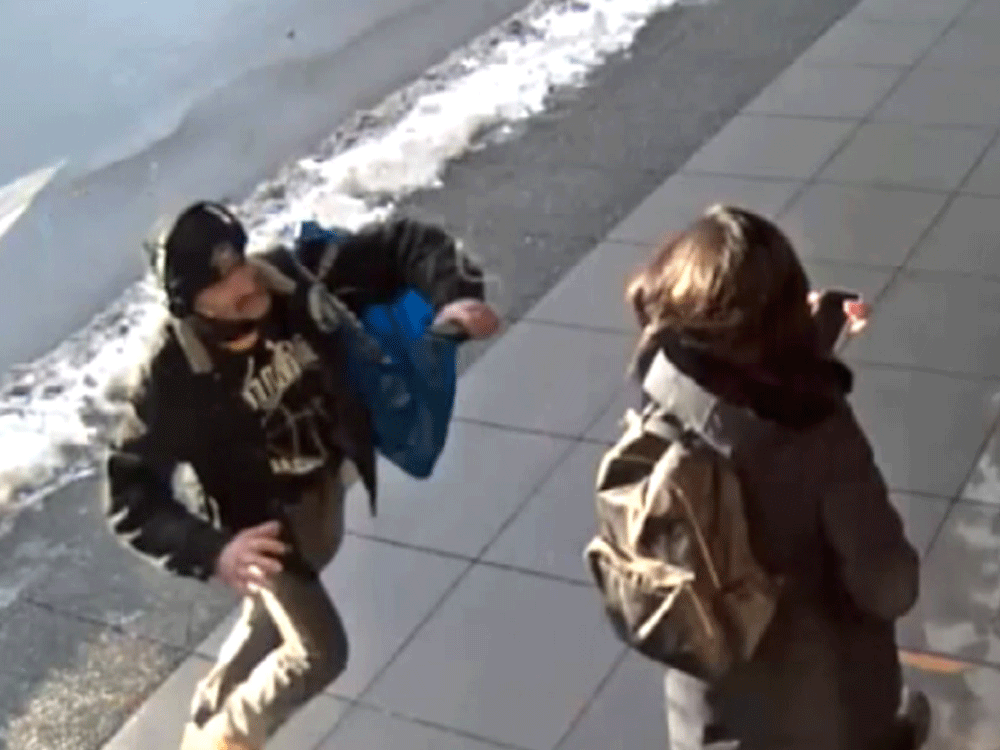A new report commissioned by the B.C. government and the Urban Mayors' Caucus says the province needs to invest heavily in non-police crisis supports to help people committing repeat offenses to break out of that cycle.
It’s a small group of people who are disproportionately committing repeat offenses, according to the report.
The report comes as municipal elections are underway across the province.
Some Vancouver parties have made crime a major part of their platforms. The report noted that Vancouver along with Victoria have seen an increase in unprovoked stranger attacks during the pandemic.
A “pure law and order” approach doesn’t usually stick with Vancouver voters, cautions political scientist Stewart Prest of Quest University. As a result, Vancouver parties have released platforms with a mix of enforcement solutions and those focused on treatment.
There’s been a drop in crime during the pandemic, but Doug LePard, the retired Transit Police chief who co-authored the report, told media that this trend is “quite misleading.”
In Vancouver, that drop of total reported crimes has been a dramatic one. Between 2019 and 2021, incidents fell from 56,884 to about 40,000, a decrease of 29 per cent. Calls to police also decreased by nine per cent in that time.
A big contributor to that drop is the decrease in property crime. With fewer people downtown and more people at home, there were fewer opportunities for theft like residential break-ins and from cars used by commuters.
LePard honed in on specific types of crime.
“A perfect example is the 45 per cent increase in serious assaults and assaults involving weapons and a 60 per cent increase in weapons offences around the Hastings Street encampment in Vancouver in just the last few months,” he said.
“Virtually everyone we interviewed — street nurses, mental health workers, staff at the downtown community courts, mayors, police officers — describe what’s quite obvious, which is the increasing intensity of disorder and aggressive behaviour in downtown areas across B.C.”
A different downtown
Diana Pan says the unease from the “randomness” of the attacks she’s seen on the news — and seen firsthand — makes downtown feel like a different neighbourhood from when she first moved there about four years ago.
“I wanted to live downtown,” said Pan, 29. “It just seemed like a fun thing for a younger person to do. It’s just convenient to go out or meet people, and also because my work is here. I walk everywhere because I’m car-less.
“Before COVID, I never really thought about safety that much. As a woman, if it’s late at night… I would maybe plan ahead to get a taxi, ask to get picked up or go with somebody. But now, [attacks] are happening during the day. That’s what’s scary: because it’s so random.”
During the pandemic, there have been a number of high-profile crimes downtown: two attacks with a machete; a Yaletown stabbing death; the Chinatown assault of a woman and a toddler; and the daylight attack of a 22-year-old woman in the middle of downtown, during which she was lunged at, grabbed and thrown to the ground by a man she did not know.
While Pan hasn’t been attacked herself, she did walk past the central library on an August morning right after a man allegedly exposed himself and assaulted three women. She saw the man and two of the women, one of whom had fled across the street and was calling the police.
Her boyfriend experienced an incident firsthand. On his way to pick up a car share, he was followed by a stranger who picked up speed and charged after him. He was able to get into the car and lock it. The stranger banged on his windows and continued to run after the car even when he drove off.
Pan’s routines haven’t changed much, but she has picked up a few new habits when walking through downtown. She takes a different path to work to avoid streets where people are loitering. She doesn’t use her phone while walking, to “have both my hands free in case.” If she comes near someone who makes her feel uncomfortable, she’ll avoid eye contact or cross the street to avoid them.
“I feel really sad that it has to be like that,” said Pan. “I’ve always been very empathetic and compassionate about the people I share the city with. [But] right now, I feel like it’s not worth taking those chances.”
Earlier this year, the police analyzed data from recent cases and found that mental health was a factor in 73 per cent of stranger assaults. In addition, 60 per cent of suspects had been previously charged with violent crimes.
“It’s like a cycle,” said Pan. “It’s so multifaceted. It’s such a complicated thing.... Even if they arrest that person, so what?”
Pan isn’t sure exactly what solutions she’d like to hear from politicians this election season, but she does feel it’s systemic ones that are needed.
Political scientist Prest says this is in line with how most Vancouverites view issues of crime, mental health and substance use problems.
“This is a city where people tend to provincially and federally look to the NDP and the Liberals,” he said. “That’s reminiscent of a population that would want to address those kinds of issues holistically, trying to address the root causes.”
Party promises
Of all of Vancouver’s parties running candidates this election, the right-of-centre NPA have been pushing a law and order message the hardest.
The party’s mayoral candidate Fred Harding is a self-described “Beijing businessman” who formerly worked as a cop in London, U.K., and West Vancouver. He launched his campaign at the downtown site of one of the machete attacks.
“What we’re experiencing — and I say this without a hint of hyperbole — I think outside of a war and in western democracy, this is probably the fastest deterioration of a city since the Great Depression,” Harding told The Tyee on Sept. 14.
His party’s campaign materials say that the city is “no longer safe,” and that the “public safety crisis is no longer isolated to the Downtown Eastside.” As a result, “We are all affected now, from UBC to Boundary Road.”
However, police data show that about a third of Vancouver neighbourhoods have seen a decrease in assaults and sexual offenses between 2019 and 2020. The incidents have only spiked in a few neighbourhoods, the worst in the West End.
Harding says a data analyst on his team produced a different picture of crime compared to the Vancouver Police Department’s.
“When you look at these [numbers] on a per capita basis with COVID, the lockdowns on the city, the lack of people there, it shows a surge in crime because it’s how the data is put together and how it’s analyzed,” he said.
They plan to release their findings soon, he said.
The NPA party’s public safety platform is promising “Enforcement of Civil Behaviour” but also “Harm Reduction; Prevention; Treatment.”
ABC Vancouver — the newly formed rival party of the NPA, made up of many of its former politicians — is promising to expand an existing program called Car 87 by hiring not only 100 police officers but also 100 mental health nurses.
Forward Together, the party of incumbent mayor Kennedy Stewart, is proposing a planned mobile service called the Health and Addictions Response Team to provide non-emergency mental health and addiction assistance via a 311 call. The team would start with 25 staff positions.
OneCity says it wants to “de-task” the police and reallocate funds towards community-based groups instead, such as Indigenous-led community safety initiatives and a Peer Assisted Care Team model for those experience a mental health crisis. PACT has been rolled out in other B.C. cities.
Crime vs. the housing crisis
Despite the worries about crime, a poll conducted earlier this month by public opinion firm Research Co. shows it’s not the issue that’s top of mind for Vancouver voters.
Only nine per cent of respondents said crime is their top issue, tied with poverty and property taxes. It was surpassed by the drug poisoning crisis, selected by 14 per cent of respondents.
But the biggest issue of all — selected by 35 per cent of those surveyed — remains the housing crisis.
— With files from Jen St. Denis. ![]()
Read more: Municipal Elections 2022, Rights + Justice, Municipal Politics


















Tyee Commenting Guidelines
Comments that violate guidelines risk being deleted, and violations may result in a temporary or permanent user ban. Maintain the spirit of good conversation to stay in the discussion.
*Please note The Tyee is not a forum for spreading misinformation about COVID-19, denying its existence or minimizing its risk to public health.
Do:
Do not: